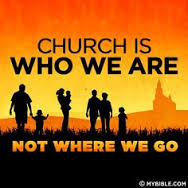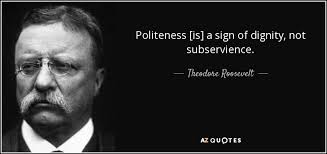Polarization can be understood on a number of levels. On three of these, it seems, the recent Polarization and the U.S. Catholic Church conference showed great hope. The first is the simple task of engaging differences in a civil, critically intelligent, and charitable fashion. When discourse among Catholics descends into com-box land, we have a problem. I think most people know this, though the anonymity and impersonality of internet communication can make us forget.
The second level is overcoming the tendency to engage in de facto dissent about one or the other piece of the Church’s social teaching. It is evident that the group assembled was a group where those who leaned Left nevertheless wanted to retain the importance of life and family issues, and those who leaned Right were honest and clear on the real need to address immigration, poverty, and the environment. That’s fantastic. While the dictates of (genuine) prudence might lead to different political conclusions about poverty programs or abortion laws at any particular point, these differences form a real dialogue, which I take to be the kind of “virtue” to which polarization is opposed as a “vice.” There was one issue that seemed to remain neuralgic; more on this in a moment.
A third level of polarization is one in which every ecclesial battle comes down to a conflict between authority and individual – or the hierarchy and the laity. With a couple exceptions, the conference was almost entirely free of this kind of thing. This is striking. Francis has surely helped, as has a clearer sense everyone has of the diversity among bishops. When there are differences among bishops, it is much more difficult to villify “the hierarchy.” But there is a further shared sense of clericalism as an attitude – one that can infect lay professionals, too – being the real problem, and that everyone needs to work on this. Henri de Lubac’s critique of “spiritual worldliness” as one of the Church’s greatest threats has sunk in.
This is all very hopeful. Yet three questions also lingered for me. Perhaps they need to be the subject of further conversations. (1) Can we name and claim more clearly the purpose of the Church? Certain speakers were able to name the core project around which the Church gathers: the introductory speeches by Bishop Flores and Fr. Jenkins marked out different terrain; they were both forthright in talking about Jesus and the Kingdom. Both grasp that while the Church has an absolutely crucial social and political mission, its ultimate identity is not political. Nevertheless, the space Karl Rahner tried to identify between old triumphalistic “integrism” and the modern tendency towards a spiritualized individualism has yet to be found. At times, the discussions could easily be mistaken for a conference of people working on overcoming polarization in American society and politics… who also happened to be Catholic.
One way to name this problem is by picking up on Pope Francis’s “field hospital” metaphor. On one level, the metaphor speaks very vividly to the work of the Church amid the conflicts in our world. Francis is clearly right that the Church needs to be a place where people find compassion and healing. The more one reads of Francis’s preaching, the more impressive are his abilities to provide captivating, literary images for various aspects of the spiritual life. Call it the Ignatian imagination or assign it to his literary background. At the same time, “field hospital” is not an ecclesiology. It’s not a way of understanding what the Church is, even though it nicely captures a key aspect of what the Church does. It could link up helpfully to Lumen Gentium‘s idea of the church as the sacrament of Christ, perhaps, or to the ecclesiology of human solidarity that kicks off Gaudium et Spes. The roots for both can be seen in another deLubacian work, Catholicism, which offers his recovery of the idea of the Church as the effective sign of the unity of the human race. But this work, one which should unite fans of Benedict and Francis, is not central to the conversation. The loss of a common framework within which to understand the Church is a problem affecting those who do this for a living; the problem may be even more acute at the parish level.
(2) The “non-polarized suburban Catholic” received a lot of attention throughout the talks, and rightly so. Sociological and anecdotal evidence converge to suggest that while extremes get attention, many, many American Catholics go about the business of the parish quite innocent of any of this debate. One speaker noted that she had gone to a well-known conference on Catholic identity formation for Catholic college professors, and unexpectedly discovered a new language where people were trying to figure out whether she was a “liberal” or a “conservative” Catholic. She had never thought about these church battles before, and so responded, “I don’t know, I’m just a suburban Catholic.” It is a grace that most people don’t experience Catholic parish life as highly polarized. But how can we name this in a way that doesn’t slide towards a therapeutic religious consumerism, where the “product” is a nice dose of friendly neighbors, some formation for the kids, some comforting ancient rituals, and an encouraging word or two in a Sunday homily? It seemed that, as one speaker observed, most non-polarized parishes were essentially non-ideological and worked hard to avoid or neutralize polarizing forces in their parish life, while few were actually places where people had strongly-different social or liturgical views, yet worked together. The point is not to conduct deLubac reading groups in the parish (!!), but to improve the communication of the common identity and mission – in short, to provide answers to the question, “what exactly are we doing here at St. so-and-so?”
(3) It became clear from the very first panel to the last late-night conversation that same-sex marriage was THE elephant in the room for Catholics –people could talk about it, but only in a way that seemed limited and tentative. This is partly because of a strong sense, shared by many participants who hope for the Church to be a positive force in individual’s lives and in society, that this issue was rapidly impairing the Church’s work in dramatic ways, both in terms of welcoming gay and lesbian Catholics themselves and in terms of others who are put off simply because they cannot imagine the Church’s position. Particularly as a gathering of people who were largely drawn from the academy, from publishing, and from political circles, there was a profound sense of how impossible it is becoming to be on the “wrong side” of this issue in society… and yet equally how impossible it seemed to do anything about what the Church taught.
I don’t have easy answers. But one of the associated challenges is that, in its secular packaging, same-sex marriage has been cast in terms of discrimination and inclusion, of civil rights and identity politics, and one of the strongest themes of some speakers was the unquestioned importance of social inclusion of the marginalized in both church and society. If the gay couple in the pews or at the courthouse is to be counted among the “marginalized,” then this discourse leaves no doubt about what the Church should (and should not) be doing. Yet in another sense, it is clear that official teaching is complicated on this issue. Magisterial teaching is clearly against discrimination based on sexual identity or orientation, but it is equally clear in rejecting the possibility of marriage for anyone other than a man and a woman, does not consider this to be a civil right in the first place, and does not think the denial of such unions is an act of discrimination. In a sense, this issue is of crucial difficulty because it is a place where there is a collision between the “option for the marginalized” and other Church teaching. And the tendency for many is… well, frankly, the tendency is to lapse into silence or quite elliptical ways of talking.
This apparent collision of the Church’s sexual and social teaching seemed to remain the source of polarization that will not die. Perhaps the problem involves temptations to conversation-stoppers on both sides, whether those of absolute norms or of claims of oppression and exclusion. The conversation-stopping quality of appeals to absolute norms, without discussion, is obvious; the conversation-stopping effect of the deployment of the language of discrimination, victimhood, and exclusion needs to be named. Whether on abortion or racism, the issues are absolutely essential and urgent; it’s the conversation-stopping character of these issues that poses the problem. For example, despite the onset of the riots in Baltimore, very little was said about this difficult and polarizing issue of race, policing, and poverty – one speaker briefly brought up the hashtag debate about “black lives matter” versus “blue lives matter” versus “all lives matter.” But the deeper need is to move beyond (while not rejecting!) the framework of race and poverty: there are more difficult discussions, on the one hand about the exclusion of neighborhoods from the social fabric, and on the other about the dysfunctions and conflicts generated within the places itself. David Brooks’s recent column (and the surprisingly thoughtful com-boxes) seems to represent what a coherent, both-and Catholic social teaching view would offer. Brooks may not be right about all the particulars, but the general approach is to take both “cultural” and “structural” issues with seriousness, instead of just pitting them against one another. The Church has the teaching to do this both/and, in order to move us beyond the current political stalemate.
But a more frank discussion of the core issues must be faced. I have elsewhere suggested (repeatedly, perhaps to the point of people becoming sick of it) that excessive consumerism, lavish lifestyles, inadequate wages, and fossil fuel addiction are all core issues that require attention in our social debates. The Church has clear (even if prudential) teachings on these matters; it’s not easy for any of us to address these problem because they hit close to home, but we must. On the other hand, the Church holds as a consistent and core teaching that sex outside of marriage is a problem, and that the spread of a “contraceptive mentality” which believes that sex and procreation can be separated at will leads to many social problems. It is the case that we now have a society – or at least large parts of society – where there is a near-complete divorce of sex and procreation, and both from marriage. Robert Putnam’s new book Our Kids cites a dramatic statistics: for college-educated white couples, the out-of-wedlock birthrate is 2-3%, for high-school dropouts, the number is near 70%. I do not cite these numbers for the sake of moral judgmentalism, but simply to indicate the jaw-dropping problem, and the extent to which the problem is masked if people live their lives among people of their own social class. It is the case that on every graph of social indicators, the scale of this is on a radically different level from previous points in our history. And finally, it is the case that these problems create massive harm. Conceiving while single contributes overwhelmingly to there being a million abortions a year. It is what sets up the economic struggles and conflicts that characterize many communities. (Is it the ONLY thing? No… but like the Catholic who can never enter any conversation without making it about abortion, it’s equally important for progressive Catholics to stop making every conversation begin and end with social structures, especially market-state battles) Most importantly, this is what leads to untold injustice toward the child conceived in this way.
Increasingly, scholars with solid progressive credentials, like Putnam and Paul Roberts, are articulating the need for an approach to social problems that cannot simply neglect traditional convictions about family, stability, and the like. It is heartening to see Putnam as the featured speaker next week when Georgetown hosts a conference of Catholic and Evangelical leaders coming together on poverty. This is an extremely promising development, for if some kind of unity of conviction on these issues could be forged by people of faith, it would go a long way toward breaking the current logjam. Can Catholics support this and come together in a way that strongly links sexual and social teachings, that links individual virtue and structural change? What kind of developments would the ecclesial conversation need in order to do that?






“Magisterial teaching is clearly against discrimination based on sexual identity or orientation, but it is equally clear in rejecting the possibility of marriage for anyone other than a man and a woman, does not consider this to be a civil right in the first place, and does not think the denial of such unions is an act of discrimination”
This of course speaks to the Catholic understanding of marriage. But we live in a pluralistic society and we have to accept that the rest of society does not share the Catholic understanding of marriage. It is the same, for example, in a Muslim society where the understanding of marriage is also different.
My Bishops do teach that there is a civil right to legal recognition of people who are lving together in a stable and comitted relationship outside of marriage, for example, but not restricted to, same sex unions. Pope Francis seems to support this, as do a growing number of Cardinals.
The main teaching around legalising gay marriage is not a doctrinal teaching at all, it’s a POLITICAL prudential judgment on the supposed social effect of changing the secular marriage laws. On such political prudential judgments about law changes, Catholic have always been free to agree or disagree.
It is worth looking, following Aquinas’ method, at the moral object of a couple who decide to have a state same sex marriage ceremony. A careful examination of the cermeony indicates that there is nothing whatsoever in it, and in particular the vows made, to love each other to death do us part, that is in any way contary to any Catholic dogma. There is no promise of sex.
On the other hand, it is well known that most Catholic heterosexual marriages, and most Catholic singles, also indulge in sexual activity contary to Catholic moral teaching.
It is worth humbly reminding ourselves of the uncertainty of Catholic teaching around homosexual acts. None of it is infallible, none is taught at encyclical level or by any ecumenical council, none was taught by Christ or is found in the gospel. None is dogma.
I am encouraged that the conference seemed to identify the position on homosexuality for the pastoral disaster it is. If the New Evangelisation is to succeed, this is an issue the Church must address.
God Bless
Chris– I very much appreciate your clear comments, which move the conversation forward. You note one underlying issue in all this that is very important, namely that singling out any one “group” of supposed “sexual sins” is very problematic. Three points of response: 1. The teaching on same-sex marriage is a natural law teaching and does not involve particular “Catholic” claims about marriage. Your point about prudential judgment about civil laws in a pluralistic society still stands. Marriage remains a very tricky issue for Catholic thought precisely because it is recognized (both by society and by the Church) as a practice at once “secular” and “religious.” 2. There is a serious problem with the “tolerate pluralism” argument in this case. If we look at Aquinas’s explanation of the toleraance of civil law in q. 96, he is clearly imagining that tolerance applies to WRONG actions whose harm to society is not significant, and the enforcement of which might involve greater evils. Hundreds of examples spring to mind, especially in terms of speech – lying is both wrong and harmful, but blanket laws against lying would clearly be a disaster. On the one hand, the case could be and is made that tolerating same-sex marriage does little social harm. But on the other hand, this argument puts Catholics in an awkward position, since making it implies that same-sex marriage is analogous to (for example) lying, adultery, and other “wrongs” that are tolerated. The “pastoral disaster” problem is not solved by taking this position. 3. The root problem remains the fact that we are now using the same term – “marriage” – with incommensurable definitions. Even the questions of the recent Supreme Court hearing point to this issue of definition as the heart of the problem. It will be interesting to see what the court finds, because it seems to me the court is somewhat trapped between (a) allowing a plurality of definitions to exist, which would seem to offer no grounds to strike down state laws, or (b) offering its own definition, which would then seem to contradict the pluralism.